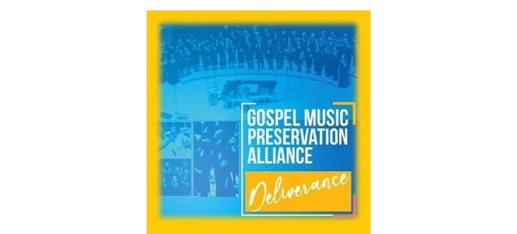NCGCC FOUNDER & FATHER OF GOSPEL MUSIC

Prof. Thomas A. Dorsey (posthumous), widely recognized as the father of Black Gospel music, is a transformative figure in the genre's history. He is best known for composing timeless classics like "Take My Hand, Precious Lord" and "Peace in the Valley," which continue to resonate across generations. Prof. Dorsey's versatility as a composer allowed him to craft music that ranged from spirited gospel refrains to deeply reflective hymns. In 1932, he founded the National Convention of Gospel Choirs and Choruses (NCGCC), solidifying his place at the epicenter of Chicago's burgeoning gospel community.
Prof. Dorsey was self-taught in numerous instruments and performed ragtime as a teenager under the stage name "Georgia Tom." After two emotional breakdowns, he withdrew from the secular music scene and returned to music, dedicating his gifts to the church. His first gospel effort, "If I Don't Get There" (1921), received modest acclaim, but he redirected his creative energy toward sacred music. By 1932, Prof. Dorsey had organized one of Chicago's first gospel choirs at Pilgrim Baptist Church and launched the first publishing house dedicated exclusively to Black gospel composers.
Tragedy struck when Prof. Dorsey's wife died during childbirth, and their infant son passed away just days later. Grief-stricken, Prof. Dorsey secluded himself for three days, carrying the soul-stirring lyrics of "Take My Hand, Precious Lord." Prof. Dorsey composed dozens of hopeful and uplifting songs for audiences needing spiritual comfort in the following years. His work gained further traction when his songs appeared in hymnbooks produced by prominent Southern Gospel publishers, bridging cultural divides and reshaping the religious musical landscape of both Black and white congregations.
Despite not holding a traditional academic professorship, Prof. Dorsey, an honorary title, significantly influenced and instructed others in gospel music performance and composition, particularly within church choirs and the National Convention of Gospel Choirs and Choruses. Prof. Dorsey's influence endures, and by 2020, the NCGCC had grown to include over 50 chapters worldwide. He is also credited with coining the term "gospel music," first used about his 1920 composition "If You See My Savior" (Gospel Music Association, 2024).

NCGCC 1933
This photograph, taken in the 1940s, captures a moment from the National Convention of Choirs and Choruses, founded by Prof. Thomas A. Dorsey in 1933. Seated prominently at the bottom center is Prof. Dorsey himself, with Mother Willie Mae Ford Smith to his left, Magnolia Butts Lewis to his right, and Theodore Frye beside her. Those familiar with the era may also recognize several other individuals in this image. Notably, just three rows above Mother Smith, one can see her daughter Bertha, who frequently accompanied her mother on the piano, recorded with her, and traveled alongside her.
Subscribe
Copyright © 2025 Gospel Music Preservation Alliance, Inc. All Rights Reserved
Website Design Courtesy of Dr. M.A. Langston Covington

Own the Praise. Claim Your "DELIVERANCE" Now.
Buy NowThis website uses cookies.
We use cookies to analyze website traffic and optimize your website experience. By accepting our use of cookies, your data will be aggregated with all other user data.